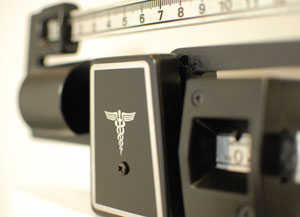June is Canadian Men's Health Month
By Eqra Jan, and Michaela Karam (Get Well Clinic)
Although men’s health is important all year round, Canadian Men's Health Month is a time to remind the men in our lives to build healthy habits that support physical and mental health.

Men tend to not prioritize their health as much as women do, who are more frequent users of primary healthcare services (Kazanjian, Morettin, & Cho, 2004). Although many men do not see the use of regular check-ups, annual screenings and tests are some of the most beneficial steps a man can take to support his overall health. These help to find problems and diseases early on, which can give you an edge by addressing them before they worsen. (Integris Staff, 2019).
How often should I have health screening tests?
Prostate exam
Test: digital rectal exam (DRE)
Starting age/How often: The Canadian Cancer Society (2021) recommends to begin annual screening at the age of 50 (or 45 for high-risk men, and 40 for African Americans and men with a family history of prostate cancer).
Testicular cancer exam
Test: testicular self-exam (TSE), best done after a warm shower
Starting age/How often: The Canadian Cancer Society (2021) recommends starting this screening at age 15 and doing it monthly. Additional screenings may be necessary in cases involving a family history of testicular cancer or an undescended testicle.
Colorectal exam
Test: colonoscopy
Starting age/How often: Cancer Care Ontario (2020) recommends having your first colonoscopy at age 50, or 10 years earlier than the age your relative was diagnosed, and then every 5 years (or more often depending on family history or results).
Test: fecal immunochemical test (FIT)
Starting age/How often: The Canadian Cancer Society (2021) recommends to begin screening at age 50, every 2 years if you are not at high risk.
Skin cancer screening
Test: total body skin exam
Starting age/How often: The Canadian Cancer Society (2021) recommends screening annually (or more often if risk factors are present, including moles, light skin, previous sun damage, or history of tanning bed use)
Blood pressure screening
Test: blood pressure test
Starting age/How often: The Canadian Task Force (2019) recommends measuring blood pressure annually, starting at age 18.
Cholesterol level tests
Test: fasting blood lipid panel
Starting age/How often: The Canadian Cardiovascular Society (2016) recommends having this blood test at age 40 (or earlier for those with a higher risk factor), and then repeating them every 4-6 years (for healthy individuals).
Diabetes tests
Test: fasting blood sugar test; glucose intolerance test; A1C test
Starting age/how often: Diabetes Canada (2018) recommends beginning these tests at age 40 (or earlier if you have high risk factors, such as high cholesterol or blood pressure), and continuing screening every 3 years.
Book an appointment with a GWC physician today for a Complete Physical Exam.
Request a family doctor if you do not already have one.
Some impactful areas to consider optimizing your health
In addition to a variety of screenings, we know that small actions, such as maintaining a balanced diet and making nutritious choices about the food we put in our bodies, can have a profound effect in preventing a whole host of chronic diseases (think type 2 diabetes, heart disease, obesity, or even cancer) and benefit men’s long-term health in countless ways (Public Health Agency of Canada, 2018). This is important since 82% of Canadian men do not meet the recommended physical activity guidelines, 76% are not eating as healthy as they should, and 29% are obese (Public Health Agency of Canada, 2018).
Obesity management
The fact that 29% of Canadian men are obese should not be overlooked, as obese indivduals are at increased risk for developing many different medical problems. Common comorbidities include type 2 diabetes, cardiovascular disease, non-alcoholic fatty liver disease, altered behaviour and cognition, and cancer. Thus, addressing obesity is often a first step in dealing with a whole host of issues. Obesity can be a complex and sensitive issue that your physician can help guide you through properly, depending on your unique circumstance.
Get involved with our Get Well Weight Management Program today.
Nutritional eating
A balanced diet is crucial to a healthy lifestyle and is combative against several diseases, including obesity, also helping to lower the risk of heart disease, type 2 diabetes, and some types of cancer. Some key food groups to focus on meeting requirements for and getting variety in are fruits, vegetables, whole grains, low-fat fairy products, and proteins such as lean meats, poultry, fish, beans, eggs and nuts (Cleveland Clinic, 2021). Individuals should strive to consume 5 to 10 servings of fruits and vegetables (organic or not) each day, a goal unfortunately often not met by Canadian men (Living & Wellness, 2020). Foods low in saturated fats, trans fats, cholesterol, salt and added sugars are beneficial for those weary of heart health and weight management (Cleveland Clinic, 2021). For guidance on improving your diet, it is always a good idea to utilize resources offered by the Canadian Food Guide, which also consider the role of accessibility in making these healthy choices seem unattainable. Additionally, speaking to a trained healthcare professional is useful for more personalized advice and planning.
Staying active
Daily exercise (at least 30 minutes) is another important habit for maintaining a healthy body and mind. It is essential in preventing or reducing the risk of many chronic diseases including, cancer, depression, and dementia. It is the best method to maintain and improve heart health, muscle strength, balance, and flexibility in men over 50. Both aerobic and cardio exercises are recommended by experts (Cleveland Clinic, 2021). And remember, if you have not been active for a while, consult your doctor before beginning an exercise program!
Taking care of your mental health
Men often neglect their mental health due to the stigma surrounding it and find it difficult to discuss their feelings. In addition to talking to a therapist or trusted other, exercising, surrounding yourself with a great support system, and getting enough sleep are great ways to take care of your mental health on a day-to-day basis.
To learn more about the link between fitness and mental health, read our blog post “Mental Health and Exercise”! https://getwellclinic.ca/announcements/guides/mental-health/199-mentalhealth-exercise
Click here to learn more about our counselling and mental health services.



